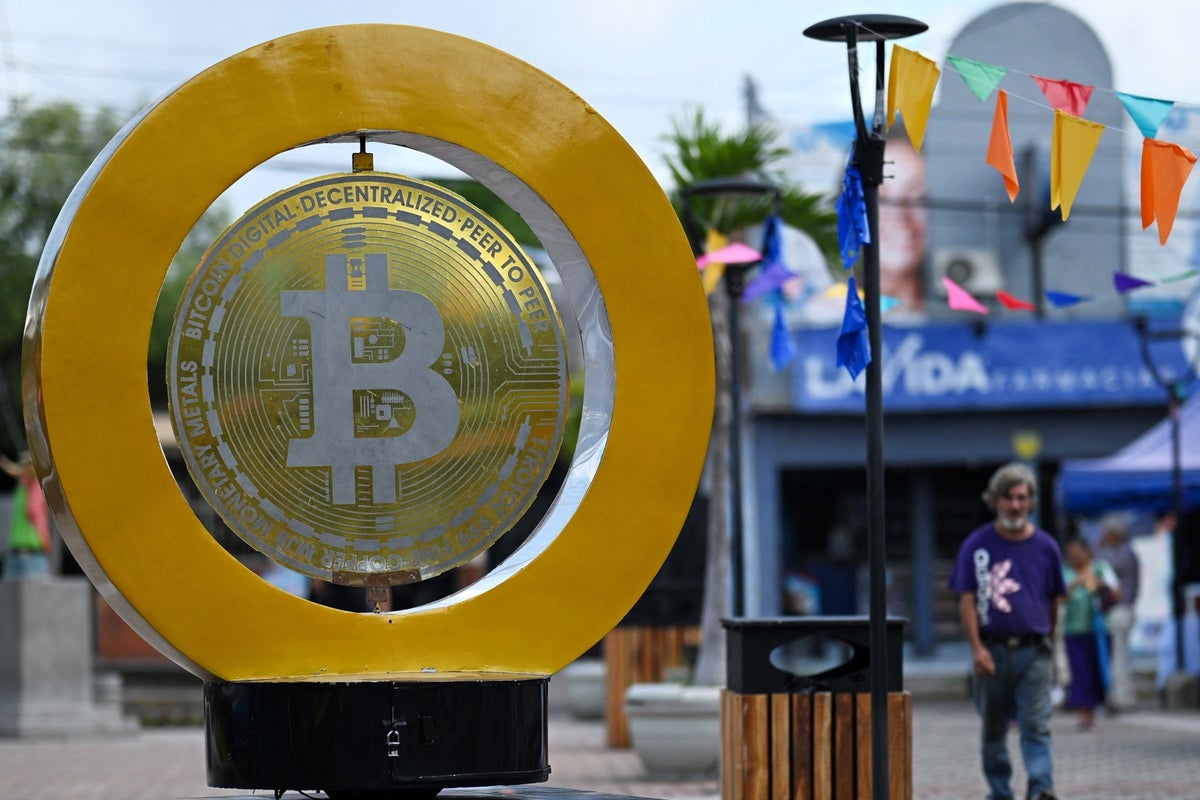Your support helps us to tell the story
From reproductive rights to climate change to Big Tech, The Independent is on the ground when the story is developing. Whether it’s investigating the financials of Elon Musk’s pro-Trump PAC or producing our latest documentary, ‘The A Word’, which shines a light on the American women fighting for reproductive rights, we know how important it is to parse out the facts from the messaging.
At such a critical moment in US history, we need reporters on the ground. Your donation allows us to keep sending journalists to speak to both sides of the story.
The Independent is trusted by Americans across the entire political spectrum. And unlike many other quality news outlets, we choose not to lock Americans out of our reporting and analysis with paywalls. We believe quality journalism should be available to everyone, paid for by those who can afford it.
Your support makes all the difference.Read more
El Salvador has announced plans to split its vast bitcoin holdings into multiple wallets in order to protect against potential quantum attacks.
The Central American country owns roughly half a billion pounds worth of the cryptocurrency, having introduced it as legal tender in 2021.
The country’s Bitcoin Office said the move to split its holdings was part of a strategic initiative to “enhance the security and long-term custody” of its bitcoin reserve in the event of quantum computing advances.
“Quantum computers have the theoretical capability to break public-private key cryptography using Shor’s algorithm,” the government department wrote in a post to X.
“This cryptography underpins not only bitcoin but also many daily systems like banking, email, and communications. When a bitcoin transaction is signed and broadcast, the public key becomes visible on the blockchain, potentially exposing the address to quantum attacks that could discover private keys and redirect funds before the transaction confirms.
“By splitting funds into smaller amounts, the impact of a potential quantum attack is minimised.”
Quantum computing research firm Project Eleven has estimated that around 6 million bitcoin could be at risk to quantum machines in the future due to exposed public keys.
In May, investment giant BlackRock issued a warning about future quantum technology, claiming that it could “undermine the viability” of the cryptographic algorithms used for digital assets like bitcoin.
Some figures within the crypto industry have downplayed the threat that quantum computing poses to bitcoin, claiming that a fix could be implemented to the cryptocurrency’s underlying software in such an event.
“The answer is [a] bitcoin network hardware upgrade, bitcoin network software upgrade,” Michael Saylor, whose company Strategy owns 629,000 bitcoins (worth £50 billion at today’s prices), told CNBC in June.
“Just like Microsoft, Google, the US government upgrade, we’re just going to upgrade the software.”
He added that it’s “the hardest thing in the universe to hack”, claiming that the technology underpinning communications and banking systems arer “an order of magnitude weaker”.

